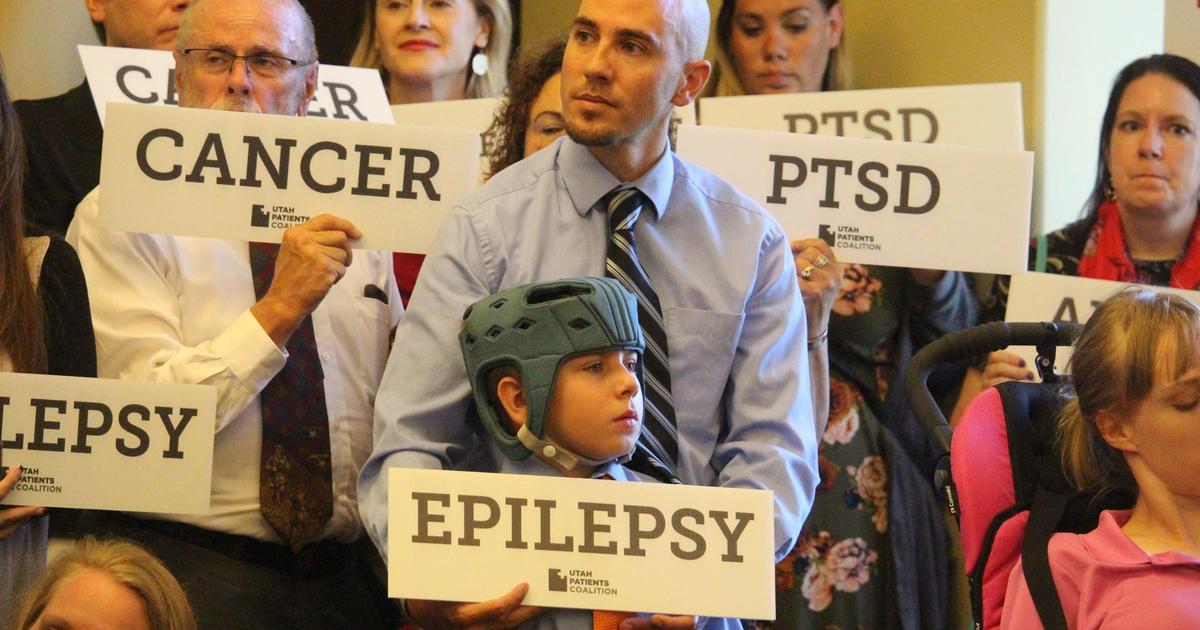
Proper prescription and distribution of any medical substance is critical. However, appropriate distribution should be determined by experience and expertise in the product and field—not just a title. This is my cause for concern around the provision for dispensing Medical Marijuana in Utah’s proposed legislative compromise to Prop 2.
While extolling the advantages of the compromise, Utah Governor Herbert stated that; “Under this plan, marijuana will be distributed to patients by well-trained, physicians and pharmacists who are qualified to do that very thing.”
I wasn’t alive when pharmaceutical advancements began to become a for-profit endeavor instead of the pursuit of wellness and compassion that drove efforts by Alexander Fleming, the discoverer of penicillin, and others like him. As a result it would be presumptuous to relate my view of that transition. However, there is no question that such a transition occurred.
Today’s pharmaceutical discoveries are the results of deep analysis of potential markets, the average net worth of the target market(s), the expense of R&D, the likelihood of FDA approval, and time to market (meaning how long the R&D cost will be carried). Last, but not least in the product decision cycle, is how much the drug company calculates they are likely to pay out in legal challenges and/or fines arising from side effects.

Have you ever noticed that each time a drug is marketed on TV, or streaming video, the music is intentionally peaceful and upbeat and the the voice detailing the side effects is positive, even casual, about what users could experience—including death!
Throughout the favorable monologue, listeners are repeatedly encouraged to talk with their doctor to better understand the potential benefits and risks of using the advertised drug. What isn’t explained is that it’s the drug manufacturer that trains the doctor in the “proper” use of the drug, and what side effects to look for. I understand the necessity of this, but question the objectivity of doctors trained by people seriously motivated to sell the product for significant profits.
According to Dr. Gotzsche, “prescription drugs are the third leading cause of death after heart disease and cancer. Our drugs kill around 200,000 people in America every year, and half of these people die while they do what their doctors told them…”
This is why part of the pre-market research includes calculations on how much net profit occurs after lawsuits for negative reactions. Yet this is the pharmaceutical world we live in today.
Now consider Governor Herbert’s assertion that dispensing Medical Marijuana will be performed by “well-trained” physicians and pharmacists.” Who will train them? The usual group of pharmaceutical reps whose companies oppose Medical Marijuana? Does anyone trust they will really understand the risks, benefits, and dosages?
Outside of the AMA (who opposes Prop 2) there are many bright and courageous pioneers who have pressed forward as best they can to discover how to use Cannabis to effectively, and safely, address serious health conditions.
Is Utah going to rely on those who have actually been testing and prescribing in states where it is legal? If so, why are these types of experts considered unreliable in dispensing Medical Marijuana?
If it is because of a perception that they are less likely to implement the proper controls around preventing abuse, may I just point out that with over 115 deaths each day from opioid abuse, Herbert’s endorsed physicians and pharmacists don’t exhibit a very successful track record.
In fact, opioid abuse significantly exceeds heroin statistics in every category–including death from overdose!

Another HUGE issue for licensed pharmacists is the fact that legalizing Medical Marijuana in Utah doesn’t make it legal federally. In fact, shortly after legalizing it in Oklahoma, Assistant special agent-in-charge Rich Salter with the Drug Enforcement Administration (DEA) weighed in.
According to Agent Salter, any pharmacist licensed with the DEA would be in violation of the law if he or she were to dispense or prescribe an illegal drug and could be at risk of losing their license if they were to work at a state run dispensary.
In reality, how many pharmacists are going to line up for that risk?
I agree that dispensing any drug carries with it a heavy responsibility. In fact, I’m appalled at how few people understand the danger of taking more than the prescribed dosage of acetaminophen (Tylenol).
Analysis of national databases shows that acetaminophen-associated overdoses account for about 50,000 emergency room visits and 25,000 hospitalizations yearly. Analysis of national mortality files shows about 450 deaths occur each year from acetaminophen-associated overdoses; 100 of these are unintentional.
I haven’t heard any such statistics for those using Medical Marijuana to control pain, but Prop 2 opponents make it sound like it is more dangerous than an over-the-counter drug.
Here’s a quick analogy: Suppose a governor stood and announced we have a serious need to promote the understanding and improve the processes of government in Utah. Citing the need for expert qualifications S/he then identifies a known proponent of dictatorships to lead such an effort. Would you trust the intentions of this governor?
My first suspicion would be that the governor wanted life tenure and was moving to subvert the freedoms provided by having representatives elected by the people. Likewise, it is very suspicious to turn the function of dispensing Medical Marijuana over to those who have opposed it for years.
My concern is that those identified as the proper distribution mechanism in Utah’s Cannabis compromise legislation seem to be the least experienced, least objective, and having the most to lose in prescribing and dispensing Medical Marijuana.
This provision appears to fail to meet both the publically expressed intent of the state officials and the needs of Utah’s patients.



